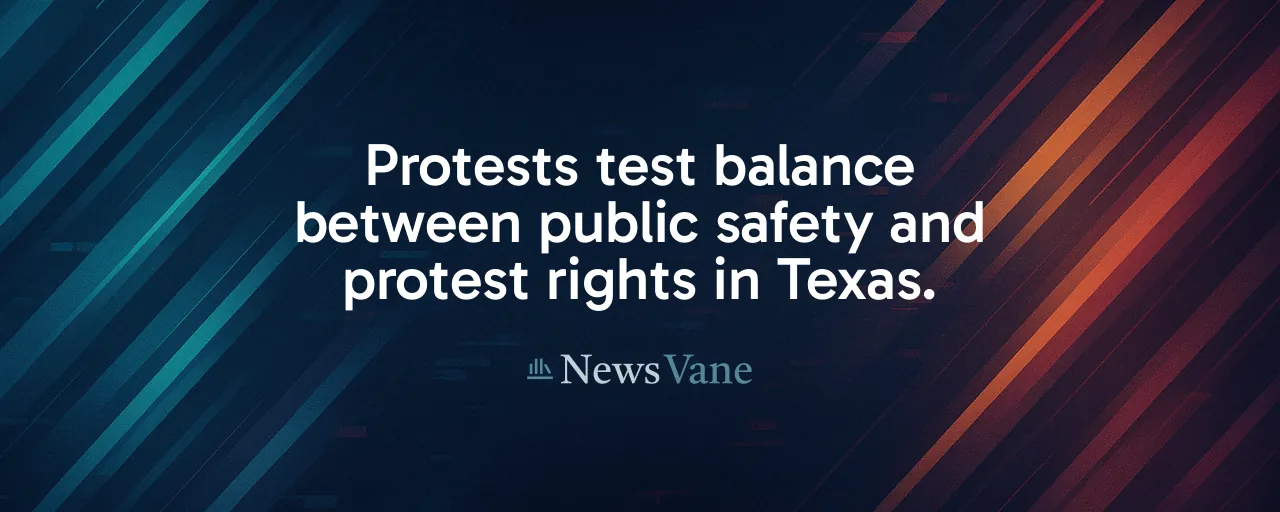A Tense Weekend Looms
Texas is preparing for a challenging weekend. Governor Greg Abbott has ordered over 5,000 National Guard soldiers and 2,000 Department of Public Safety troopers to deploy across cities like Houston and Austin, expecting protests against Immigration and Customs Enforcement (ICE). The decision follows recent unrest in Los Angeles, where demonstrations over ICE raids led to arrests and property damage. Abbott insists the move prioritizes public safety, yet it has ignited a wider discussion about the line between maintaining order and protecting the right to protest.
The protests were sparked by a surge in ICE operations, including a single-day sweep in Los Angeles that detained over 2,200 people. Images of disrupted families and mistaken detentions of citizens have driven outrage, prompting rallies in at least 25 cities. In Texas, groups are organizing under slogans like 'No Kings,' challenging what they view as overly aggressive federal tactics. With thousands of armed personnel now on alert, the state faces a complex task of balancing security with free speech.
The Roots of Texas's Response
Abbott's deployment builds on Texas's deep involvement in immigration enforcement. The state has expanded agreements that allow local officers to perform federal immigration duties, a program that has grown significantly since 2024. Through Operation Lone Star, Texas has used its National Guard for border security since 2021, but this mobilization marks a shift toward managing domestic protests. The governor has emphasized that any violence or property damage will lead to immediate arrests.
The operation includes aerial surveillance, tactical teams, and coordination with local police to monitor protest sites. While the Guard's role focuses on crowd control and protecting property, some units are prepared to detain protesters if situations escalate. This approach reflects Texas's history of supporting federal immigration goals, but it raises concerns about the growing use of military resources in civilian settings. The question remains whether this is a prudent precaution or an overreach.
A Broader Power Struggle
Texas's actions highlight a national debate over immigration enforcement authority. The U.S. Constitution grants Congress primary control over immigration, but states like Texas have increasingly taken active roles, often through agreements that empower local police to make immigration arrests. Since 2024, 38 states have joined such programs. In contrast, some regions, like California, resist cooperation with ICE, risking federal funding penalties in the process.
This push-and-pull has historical roots. From the 19th century, when local sheriffs detained unauthorized workers, to Arizona's 2010 law that faced Supreme Court scrutiny, states have long tested their authority. Today, the debate carries high stakes. Advocates for state involvement argue that Texas is addressing federal shortcomings, while critics contend that these efforts undermine community trust and strain local resources. The real impact, on families, neighborhoods, and public safety, remains central to the conversation.
Perspectives From Texans
The protests and Texas's response resonate deeply with residents. Groups advocating for immigrant rights argue that ICE's tactics, including detaining citizens by error, destabilize communities and spread fear. They view the Guard's deployment as an attempt to suppress dissent. Conversely, those supporting Abbott's actions emphasize the need for order, citing incidents of looting and freeway closures in Los Angeles as examples of protests gone awry.
Both perspectives carry weight. Protests have long driven social change, from the civil rights era to the 2006 immigrant rights marches. Yet public safety becomes a pressing issue when demonstrations disrupt daily life or turn destructive. The challenge lies in preserving the right to speak out while ensuring stability, a balance that Texas will test in the coming days.
What Lies Ahead
As Texas prepares for the protests, the nation is paying close attention. The demonstrations, troop deployments, and legal disputes over state and federal roles reflect broader questions about immigration and public expression. History shows these tensions are not new: states and the federal government have clashed over immigration for over a century, and protest movements often surge in response to policy changes.
The events in Texas could shape future responses. Peaceful protests with a measured Guard presence might strengthen arguments for state-led security measures. Escalations, however, could amplify demands for de-escalation and policy reform. The stakes extend beyond Texas, touching on fundamental questions of security and liberty.
For now, attention is focused on cities like Houston and Austin. The outcome will hinge on how protesters, law enforcement, and soldiers handle this moment, and whether they can uphold both public safety and the right to be heard.
